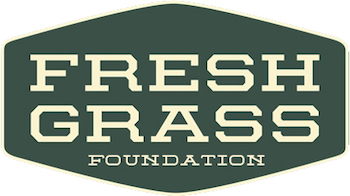Review: Gillian Welch ~ ‘The Harrow and the Harvest’
Gillian Welch
The Harrow & The Harvest
(Acony Records)
It’s hard to approach a review of Gillian Welch’s The Harrow and the Harvest with anything resembling objectivity. For one, I’m a fan. Also, her last studio recording – Soul Journey – dropped in 2003. That disc was fantastic, but not as critically acclaimed as its predecessor Time (the Revelator) (widely considered not only Welch’s finest effort to date, but also one of the best of that decade). It’s been eight years – a remarkably long breath between releases, given the amount of new music most fans consume in the course of any given month. But, it’s worth the wait.
Picking Up Where She Left Off
To refresh your memory, back in ’00, Welch bounded from cult status to torch-bearer, when O Brother, Where Art Thou featured a number of her songs. Not only did this mean that – along with Alison Krauss and T Bone Burnett – she dragged roots music into the 21st century; it also transformed this Berklee College of Music grad into the leader of a new rash of singer-songwriters. Ten years later, if you drop in on any folk festival and ask a cross-section of random strangers which CD they’re most anticipating, The Harrow and the Harvest is likely to come up.
It’s named for a farming implement and the job it performs. Down to the title, it’s an album about doing the work for the results you want. In other words, it’s about patience. Whether it’s the plea of “Tennessee” or the shadows of “Dark Turn of Mind,” there’s a sense it’s all about coming through some tough seasons. When one considers the last eight years (everything that’s happened since the Iraq war began), it’s easy in hindsight to consider the importance of patience. Yet, we face the 24-hour news cycle, instant gratification online, the constant tectonic shift of personal life. So far we’ve come from dragging the harrow across the field; collecting the harvest.
In a way, it’s a perfect artistic statement that this album took the duration of the Iraq War to produce. I don’t mean that in a political sense. Consider the way the world has changed in that time, the way music has changed, the way our routines, our expectations, and the pace of it all, has changed. Or, as Gillian sings, “the way the cornbread crumbles.”
So, Is It Worth the Wait?
It would be silly to go much further without answering the one question most Welch fans really care about: Is it worth the wait?
In short, yes.
The third and fourth tracks alone pack a sizable one-two punch. “Throw Me a Rope” has been performed in concert by Welch and her partner David Rawlings for the past few years, and is one of the only such songs which wound up on the disc. (For the most part, they’ve laid down entirely new tunes.) This song in particular, though – in both honesty and heartbreak – eclipses pretty much any other sad song you may already know. (It starts with poetry before cutting to the raw chase. “I’ve never been so disabused / I’ve never been so mad.)
“The Way It Goes” manages at once to comment on the economy, poverty in general, depression, drugs, and the way these things affect our personal relationships. There’s also something in there about rural life and its rash of crystal meth labs and abuse, jail, and perhaps even the issue of overpopulation. I may be stretching, but all these things are at least alluded to, tied together with a catchy hook and a handful of solid guitar solos from Rawlings. On top of it all, Welch’s voice sounds scratched and tired, worn from the way all these things hang on one’s shoulders, on one’s soul. That each hook ends with “There was a time when [we] were friends” accentuates that all of this is much more than a collection of political issues, but rather an intimate, individual problem which – like it or not – affects us each on a personal level.
The Bottom Line
Gillian Welch is, without question, one of the finest songwriters of her generation, style, and aesthetic. That her fans have waited patiently for nearly a decade – at a time when songs, albums, and artists are in no shortage – speaks not only to her gift as an artist, but to the strength of her appeal. That the space her previous albums occupied has not been filled for eight years and counting is a testament to the importance of honesty in music. It makes a statement about how simplicity and authenticity – and great storytelling – are still in great demand, if not in as much supply.
At first listen, The Harrow and the Harvest is a very good record, but it seems like not much has changed for Welch in the past eight years. Give it a second and third run, and the songs begin to assault you one at a time. The fourth and fifth times through, it’s a sentimental experience. But, if you keep listening, you find the disc revealing layers upon layers – a tall order for a disc which mostly just includes two voices and two stringed instruments (with an exception or two here and there).
On the unexpected chance anyone reading this review is on the fence about whether or not to pick this record up this summer, just stop reading and start listening to the music. Let the first time be a breaking in of sorts, and then take it into the car. Drive it around town and then put it into your MP3 player when you go to the beach or fly off to vacation. Wear it in. Drag the harrow, collect the harvest.



